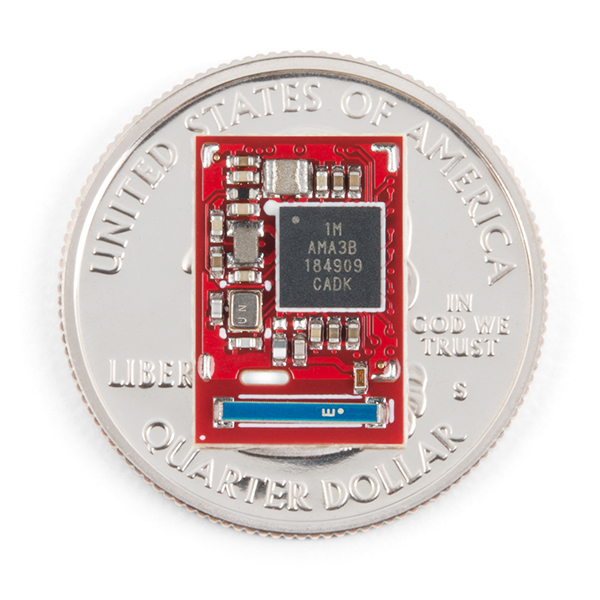It's been two weeks since the launch of the engineering version of the SparkFun Artemis Module and we haven't stopped adding new features to it! We've been publishing these updates each Friday in our weekly newsletter, but we wanted to bring some quick attention to them today in case you hadn't heard about them. Below these additional SparkFun Artemis features is a way for you to sign up to hear everything new about Artemis before everyone else. We are getting closer and closer to the release of the FCC certified version, so stay tuned!
EEPROM - We've added EEPROM support to the Arduino core for Artemis. This means you can easily store and retrieve calibration data, GPS waypoints and all sorts of settings you need to store to NVM (non-volatile memory) – and we now support doubles!
Burst Mode - We've just added an amazing new feature to the Artemis core: the ability to go twice as fast! The Artemis runs at 48MHz and sips power, but sometimes you need to run faster. With the enableBurstMode() command you can ramp up the core speed to 96MHz, cutting your processing time in half!
More I2C Ports - Do you have an I2C device with only one address? Need to connect multiple sensors? Adding a second (or fifth!) I2C port is as easy as TwoWire Wire2(0);. We've added an example showing how to connect multiple VL53L1X distance sensors (notorious for only having one I2C address) to the Artemis.
You can checkout all these features in our newsletter. Feel free to poke at the code as well! We've included examples for all the features of the Artemis in our Arduino Core







I am assuming that at some point, you expect the Artemis module to be used as a standalone in projects. Now that the module's Pads seem to be decided, do you plan on releasing a breakout module for the artemis ? Another question. why wasn't the Artemis released as a castellated board ?
I believe this comment would be better served on the product page.
That being said, if you look at the back of the board, the number of pads should be a good indicator for part of that decision. If it was castellated, the footprint would have been larger to accommodate the pinouts on the border. Also, since this is a production-ready part, I assume the pads best serve that purpose.